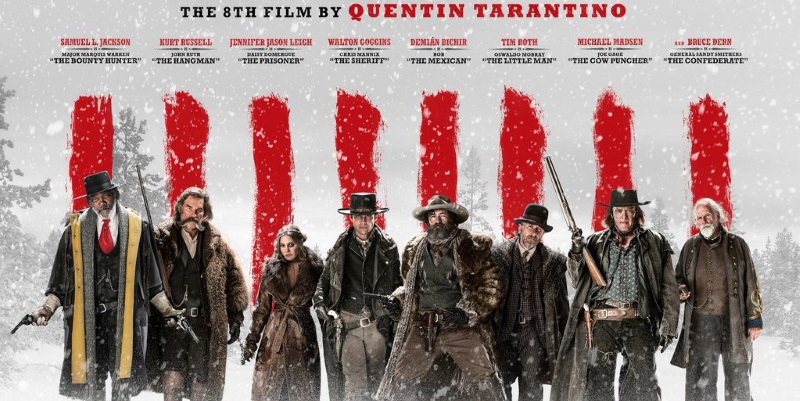Evaluating the Legal Issues In the Tarantino Script Controversy

Quentin Tarantino’s recent script controversy is garnering significant attention from news media across the globe. The hugely respected director is furious that his script The Hateful Eight leaked after he claims he gave it to only six people. He found out the script was circulating in Hollywood after receiving phone calls from talent representatives suggesting their clients for roles in the film. In light of the leak, he publicly announced that he has chosen to shelve the script. In the days following the widely-reported leak, Gawker posted a link to the copy of the script online, and Tarantino is now suing to have the link removed from Gawker’s site.
Gawker is defending itself, stating a number of defenses that support its position on why it can and will keep the link on its site. The news publication site did not actually leak the script as some media have reported; it merely linked to a place where the script exists online, and claims the company had no involvement with actually putting the script online. Gawker also claims Tarantino made the story newsworthy by publicly discussing it with other news media outlets, and therefore Gawker’s publication of the link is protected because it is news. Tarantino is suing Gawker for contributory infringement for posting the link.
The issue raises interesting points for screenwriters, particularly those who are afraid that this might happen to them. However, this case presents an interesting and relatively complex set of legal issues and deals with a high-profile director, so it is important to note that this case is an exception and represents a complicated, isolated problem.
First of all, the script is copyrighted content, and if Gawker media is responsible for placing the script online, it could be guilty of copyright infringement. In that case, normally an author’s attorney could send a cease and desist letter, notifying the media outlet of the alleged infringement and asking the organization to comply with copyright laws. However, Gawker’s representatives claim their media outlet posted only the link and has nothing to do with the link going online. If that is true, then in terms of copyright infringement, Tarantino and his attorneys would be limited to suing only the site that is hosting the document.
For those interested in the legality of posting screenplays online, there are, in fact, numerous screenplays that exist legally on the internet though websites that publish such content. Recently, ScreenCraft published an article linking to more than 70 screenplays that exist legally on the internet with permission from the copyright owners, which readers can review at their leisure. Many copyright holders allow interested fans and readers access to this information during awards season to allow members of the Academy — and fans — to make educated selections as to which scripts should qualify for top honors. The issue in this particular case is that the script has been made available without permission from Tarantino.
So, the next question arises: Is this a case of contributory infringement? It’s possible that this could be construed as such, as one can be held liable for contributory infringement for knowingly contributing to such infringement. In this case, it would be the act of actually posting the link. This becomes a question of boundaries, as to how far media outlets can go when reporting on newsworthy events. There appears to be no direct precedent concerning this kind of case involving a news media outlet, so Tarantino’s court documents rely on an inducement doctrine established in a ruling involving digital sharing site Grokster, wherein a person or organization could be held liable for contributory infringement for making it easier to find something online that was previously hard to find and encouraging users to consume the infringing content.
However, Gawker can argue that its linking to the script adds to the the dissemination of knowledge and learning, which affords it some additional protections based on its newsworthiness. Journalists can make a very strong argument that not allowing news websites to link to newsworthy copyright content could have a significant impact on the Constitutional right of freedom of the press. It can also argue that its publication of the link is fair use, though this is not a clearcut case and it would be decided based on a variety of factors such as the purpose of the work, the amount taken and the effect of the use on the potential market.
The lesson for screenwriters is that we must remember to take care to afford ourselves protections in situations such as this. Again, it is important to reiterate that this case is unusual, and that the case itself would not be so noteworthy if it didn’t involve a high-profile director. However, screenwriters can avoid such issues by ensuring they have signed nondisclosure agreements from those who handle the script, as well as working with only trustworthy individuals. Additionally, writers should always be certain to copyright their work and to register it with the WGA. Finally, had the script leak not become a major story by Tarantino’s inclination to publicly comment on it, Gawker would have no footing on which to claim that posting a link to the script was newsworthy. These matters should be handled privately when they do arise.
Should this case make it to trial, it could have major implications in terms of copyright law and protections for news media outlets. Until then, it serves as a reminder that writers should always remember to take precautions to protect their scripts, no matter how unlikely the possibility that something like this should occur.
Tags
Get Our Screenwriting Newsletter!
Get weekly writing inspiration delivered to your inbox - including industry news, popular articles, and more!

























